We all know that being a successful professional photographer requires a lot of hard work, dedication, and a little bit of luck. The advice I hear most often is don’t bother trying, do it as a hobby. But for some of us, taking photos is something we have to do because there’s nothing else we’d rather be doing. So we decide to go pro.
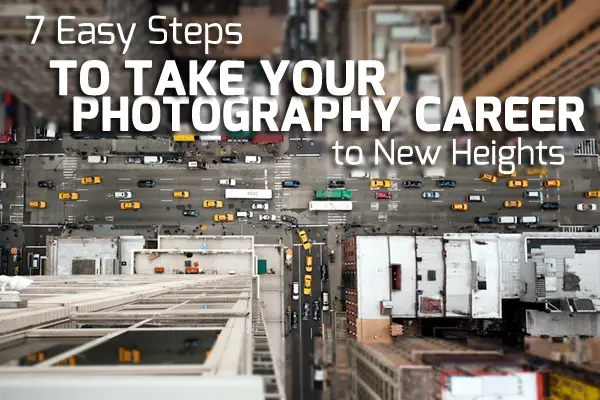
But everyone has a camera these days, and almost anyone can take a solid photo. Put almost any dSLR on auto and point it at something interesting, and you’ll probably have a pretty good photo. How do you compete with a million people doing that, especially the ones calling themselves a professional photographer?
Being a professional photographer is really about three things – being very professional, working hard every day, and offering something unique. If you want to take your photography career to new heights you need to excel at each of these steps. But that simple sentence doesn’t make for a great article, so lets break it down a little further.
1. Follow Good Business Practices
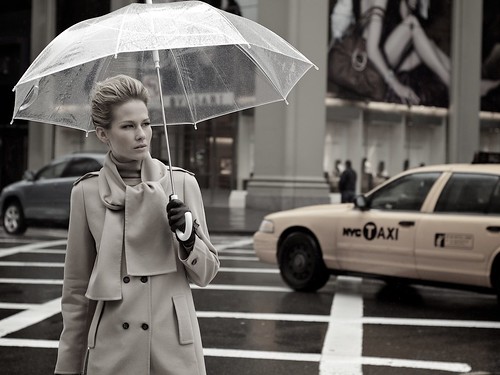
We’re artists. We don’t care about how to run a business. That’s for the nerds in accounting, or the suits who read nothing but the Financial Review. We don’t have time for that stuff, we’ve got art to make. Right?
I hear you. I get it. But that new Nikon D4s you “need” isn’t going to pay for itself. If you’re a professional photographer you know how to run a business. So much about business is about perceptions, and if clients see you as a professional they’ll take you seriously.
You don’t need an MBA to start with the basics. Make sure you have:
• Professionally designed logo
• Professionally designed website and portfolio
• Business cards, stationery, and branded invoices
• Legal photography contracts and release forms
• Business bank account
2. Actively Market Yourself

This is where your business will end up if you don’t do any marketing. Photo by Matt Dawson
Got the business basics down? Good. But now’s not the time to sit back and expect the money to roll in. You’ve still got a lot of work to do. You have to market yourself. I know, I know, you hate promoting yourself. You’re an artist. People should discover you. But don’t worry, marketing doesn’t mean selling out.
If you don’t promote yourself you’re not going to make it. It doesn’t matter how good your photographs are. If potential clients can’t find you, how will you get hired? A bad photographer can still be a successful professional photographer if they get the marketing right, unfortunately it doesn’t work the other way around.
Along with good business practices, marketing is another professional requirement that most artists are really bad at. Getting praise from other photographers isn’t marketing. 350 Facebook likes on that great landscape isn’t marketing. And neither are the 100 worthless comments on Flickr.
Like the previous step, don’t make your marketing complicated:
• Understand who your ideal client is
• Find out where they hang out, online and offline
• Get your services in front of them
3. Stop Trying To Please Everyone
All photographers love different styles of photography. There’s nothing wrong with that. It’s great to own, and be influenced by a range of different artwork. But are you marketing yourself as just a photographer? As someone who can take great shots of anything? Or are you the expert at the one thing your potential client really needs?
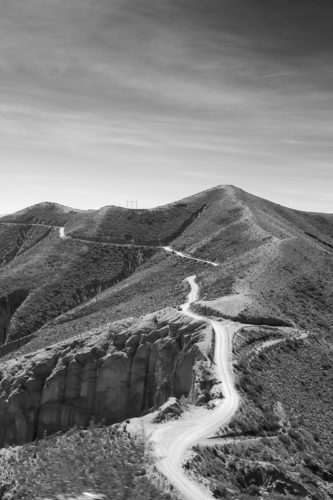
It will be a long road to nowhere if you try to please everyone. Photo by Matt Dawson
Which photographer do you think will get hired first?
Differentiating yourself from the competition is critical to success, particularly when you’re starting out. This will be your unique selling proposition or USP. And your USP isn’t just about promotion, it’s also about your brand, your services, and your marketing methods. There are a million great photographers out there, how will you stand out?
To differentiate your business think about:
• Limiting the services your offer
• Narrowing down your target audience
• Creating a single ideal client profile
• Adding your unique personality and style to every aspect of your business
4. Are You Taking Photos Every Day?
You say you love photography, it’s your passion. But are you taking photos every day? If not, why not? When you’re not working on paid projects you should be working on personal projects, and taking photos just for the sheer love of it.
By practicing everyday you will not only improve artistically and creatively, but you will discover your personal style. Remember the previous points about differentiating your business? Well that includes your style of photography.
Another important aspect of practicing everyday is increasing your knowledge of the equipment you’re using. If you need to quickly change the aperture to nail the exposure without taking your eye from the viewfinder can you do it? If you need to create more light fall-off on the background without sacrificing the quality of light on your model, can you do it?
A big part of being a professional photographer is also about being a problem solver. You learn to solve problems through experience. You gain experience by practicing everyday. And if you’re not willing to take photos every day, even for the love of it, you need to ask yourself if you really want to make this a full-time career.
5. Make Sure You Have A Plan B
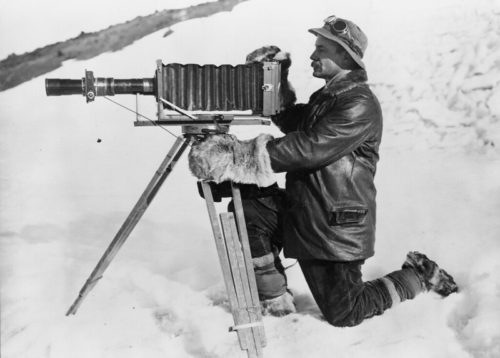
Cold weather can kill batteries, what’s your backup? Photo from the National Library NZ.
Sometimes things go wrong. What happens if your camera dies while you’re shooting a wedding. Do you have a second body? When dark clouds roll in on the environmental portraits you’re hired to shoot on a sunny beach in Bermuda, can you recreate the light you need artificially?
Stuff goes wrong all the time. If you’re a professional you have anticipated this, and will still deliver for your client. Remember, a professional photographer is also a problem solver. If you can’t afford a second body, extra lenses, or lighting equipment then rent it.
Talking about stuff failing, what would happen to your business if your hard drive failed? Would you lose everything?
Hard drives fail all the time. Make sure you’re backing up religiously. To the cloud. To an external hard drive that you store off site. Make extra copies of all your data. Nothing will kill a business quicker than a dead hard drive and no backups. You should be paranoid about backups.
6. Be Humble, Don’t Be Arrogant

Even if you know everything about photography, don’t be a jerk about it. No one likes working with arrogant people. Your photos might be great but chances are you won’t get repeat work and referrals if people don’t like you. Show respect and you’ll be respected. Be humble, kind, and friendly. You can rant and break things when you get home.
7. Call Yourself A Photographer

What do you say when people ask you what you do? Do you tell them you’re a photographer?
Tell them you’re a photographer. Say it with pride and confidence. Because after all, you are a pro aren’t you?
Conсlusion
I understand that as an artist you probably detest the thought of having to run a business. Marketing and promoting yourself makes you want to puke. And acting professional when you just want to create art makes your head hurt. I don’t know many artists who enjoy this stuff. But guess what? All the successful ones do it anyway.
Like any successful business, being a professional photographer will require you to spend as much time on the business side of things as the artistic.
Do you act like a professional? Are you working your ass off? Are you differentiating yourself from other photographers?
Let us know in the comments what you’re doing, and how you’re answering these questions.

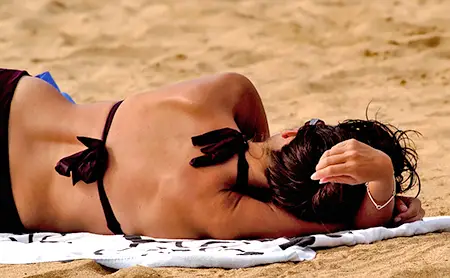







Hi
Really enjoyed the article, clear & bite size.
I use a Kite to lift my camera to take unique low leve aerial photography from an oblique angle. Of course it is totally environmentally friendly.
That’s me in a nutshell.
Interesting read. Thanks for writing the article